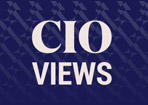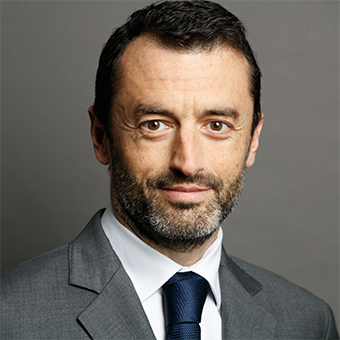Ever since war returned to Europe, in conjunction with the harmful effects of the COVID-19 pandemic on the economic model of a continent that is largely open to the rest of the world, we have seen the expression “European sovereignty” used frequently in the rhetoric of leaders and people of influence. Yet, in the context of our history, this expression could be considered an oxymoron. In the dictionary, sovereignty is defined as the exercise of power over a geographic area and the population living there, or as the status of a state that is not governed by any other. In theory, sovereignty therefore pertains to states, whereas Europe itself is not considered as such. But that is not all. Europe is made up of states that have been in confrontation with each other for centuries – militarily, culturally and economically – all to defend their own sovereignty.
The term “European sovereignty” is thus in itself an oxymoron. If the European Union had power over the people of Europe, its member states would not be sovereign.
It is therefore vital to consider how this notion of sovereignty may be redefined in the 21st century, at a time when the whole world is linked through interactions that, though undoubtedly on the decline, will nonetheless continue to exist. “Sovereignty 2.0” – the kind of sovereignty that may well exist in 2023 for major world powers, such as China, the United States and India – could refer to their ability to trade with their partners while implementing their own principles on their own soil and in their relationships with other nations without having to adjust their values. This implies a certain degree of autonomy, economic resilience, and cultural, scientific and academic influence. Although it is unrealistic to think that states in the 21st century can be entirely autonomous, sovereignty assumes, at the very least, that dependence on others in certain areas can be offset through reciprocity. This is how we will approach the notion of European sovereignty in this letter. When the concept is defined in this manner, Europe’s claim to be building sovereignty must be taken as legitimate, given the continent’s history, values and current circumstances. The purpose of this letter is to show how the concept of sovereignty can generate considerable economic value for investors.
In this historical context, how might a policy of European sovereignty emerge? How might it continue to exist? What economic value might be generated by such a dynamic? What would this kind of policy actually involve?
We will attempt to cast light on these questions, concluding that Europe potentially represents a unique investment opportunity amid the radical structural changes that are affecting the global economy. The title of this letter is much more than a reference for fans of 80s music. Indeed, “countdown” refers to the time bomb imposed on us by the climate crisis, which constrains our development model. We will explain how Europe has several major advantages in this situation that will allow it to implement a more sustainable economic model, which, in return, will guarantee its sovereignty and generate considerable financial value for investors, who will opt to allocate part of their capital to the continent.
Read more
Publication
CIO Letter - Europe, the final countdown: examining the issues surrounding European sovereignty



